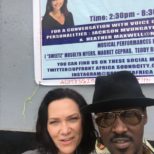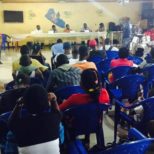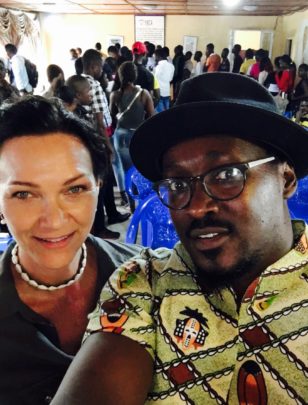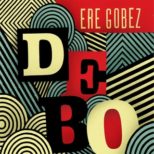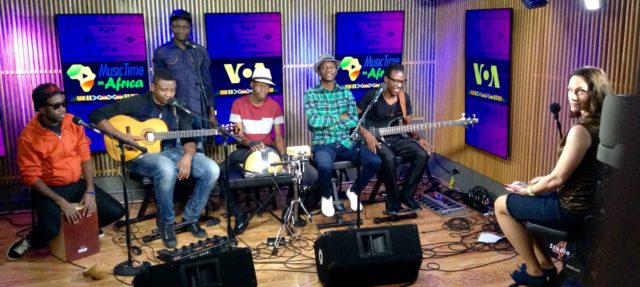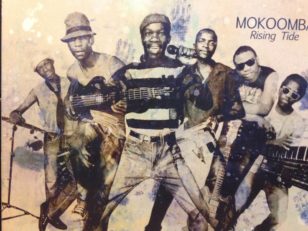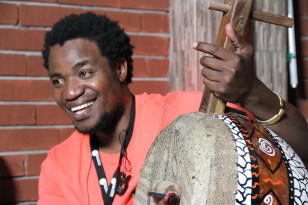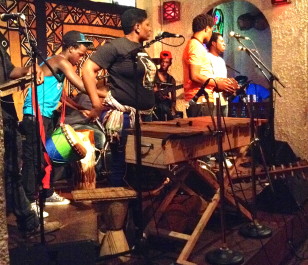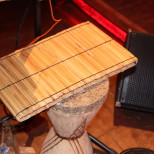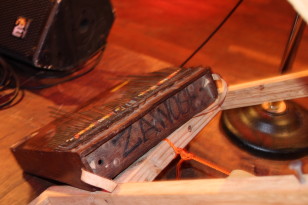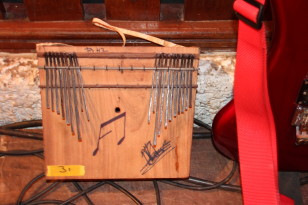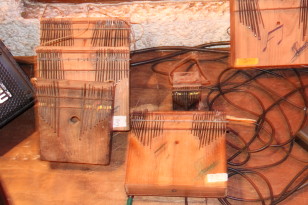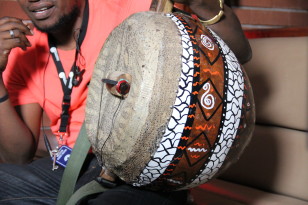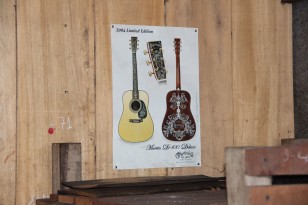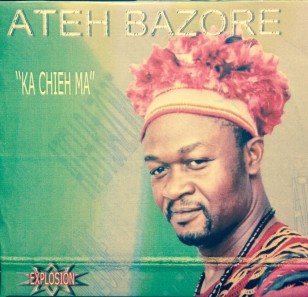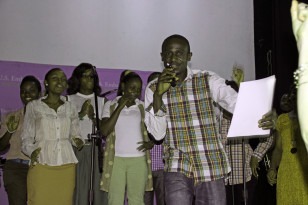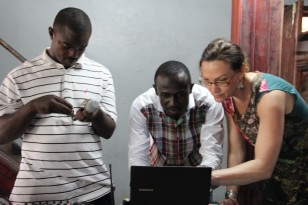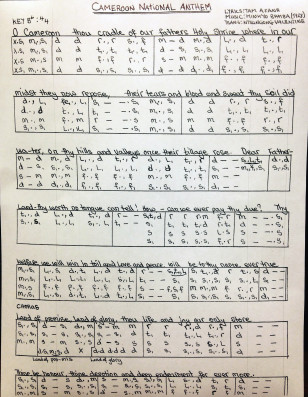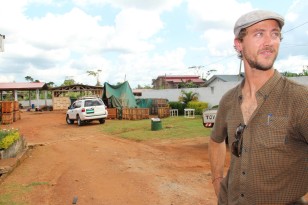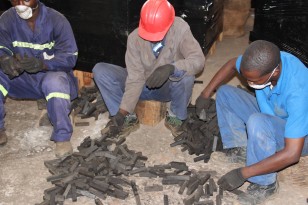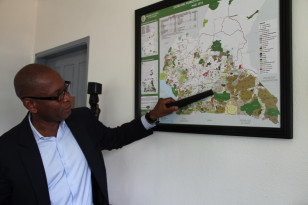Every year in mid-March, the International Nomads Festival brings people from around the world to the desert town of M’hamid el Ghizlane. They gather to celebrate nomadic life of the Sahara desert. For three days and nights, the town is abuzz with activities ranging from 4×4 Sahara tours to the Great Dunes of Erg Chigaga to late night, desert-rock concerts.
In 2017, I enjoyed all of these activities immensely. There is something about the vastness of the Sahara that opens my spirit like no other place on earth.
Like the spirit opening effect of the Sahara, the music at the festival was also breathtaking. For three nights, internationally renowned Nomad desert-blues and rock bands, such as Bombino (Niger) and Terakaft (Mali), and Moroccan superstars like Saida Charaf and Mohamed Jbara, rocked the town stage.

Terakaft live on stage at the International Nomads Festival, M’hamid El Ghizlane, Morocco 2017
The streets were crowded with local townsmen, women, school kids, hippies, Sahara trekkers, adventurers and festival goers from all over the world. Vendors were hustling their specialties: kabobs, hot coffee, spiced tea, argan oil, soap, sugar-coated nuts. Men dominated most of the standing spaces in front of the stage. Women and children stood and sat on street curbs and landscape. There was a special place on one side of the stage reserved for a boisterous class of school girls. The ambiance was sweet.

Bombino Live at International Nomads Festival, 2017. Photo: Luois Tissier
However, the best part of the music was not on the stage. Not for me anyway. It was back at the Hotel Kasbah Azalay before and after the concerts. This hotel housed all the musicians, international journalists, special guests, dignitaries and tourists. The rooms are beautiful and spacious and the hot showers were amazing! The dining room served as the meeting point at breakfast primarily and the bar/cafe had reliable WiFi, good espresso, and alcohol. This was the true “chill and jam” spot of the festival.
Here is where I bumped into Terakaft for this impromptu jam…
Outside and around the corner, Bombino agreed to play even though he didn’t even have an amp for his electric guitar. The start-up group from M’hamid, the Young Nomads, also gathered in the same spot, eager to play for the press.

The Young Nomads

Abdou Oardi
Another day oudist and music professor Abdou Ouardi played for me on the rooftop. We even jammed together to the tunes of George Gershwin’s Summertime and Tizol and Ellington’s Caravan.
The magic of the music at the Nomad Festival happens on and off stage. Combine that with the beauty of the desert and its people, it’s an experience worth having. Don’t expect to find a lot of diversity just yet, however. The “international” aspect of the Nomad Festival is limited to the countries close to and bordering the Moroccan Sahara. There was the exception with the trio of Polish bands that performed; Dikanda, Dudy Skrzypce, and Magda Navarette, but the trio was a bit of head scratcher. While the groups were the most international of musical acts, their connection to nomadism was not obvious. In an earlier publication of this article I stated that none of the Polish bands were nomads or gypsies. According to Festival Director Noureddine Bourgrab however, some of them have nomadic roots in the Beskid Mountains in the Carpathians.
Despite the limited geographic scope of the music acts, the festival still has other cultural and historical features that continue to attract international attention. I look forward to future festivals that can keep its current chill and jam ambiance, yet also add nomadic music that comes from other deserts of Africa and the world.
All photos were taken at the 2017 International Nomads Festival by Heather Maxwell and Louis Tissier.

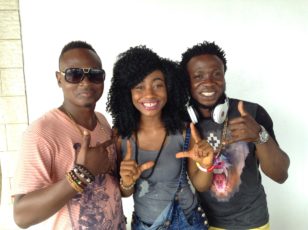 Amaze, who’s is 29 years old, made two important points about music and Ebola during our conversations . First, he said that music impacted Ebola immensely.
Amaze, who’s is 29 years old, made two important points about music and Ebola during our conversations . First, he said that music impacted Ebola immensely.